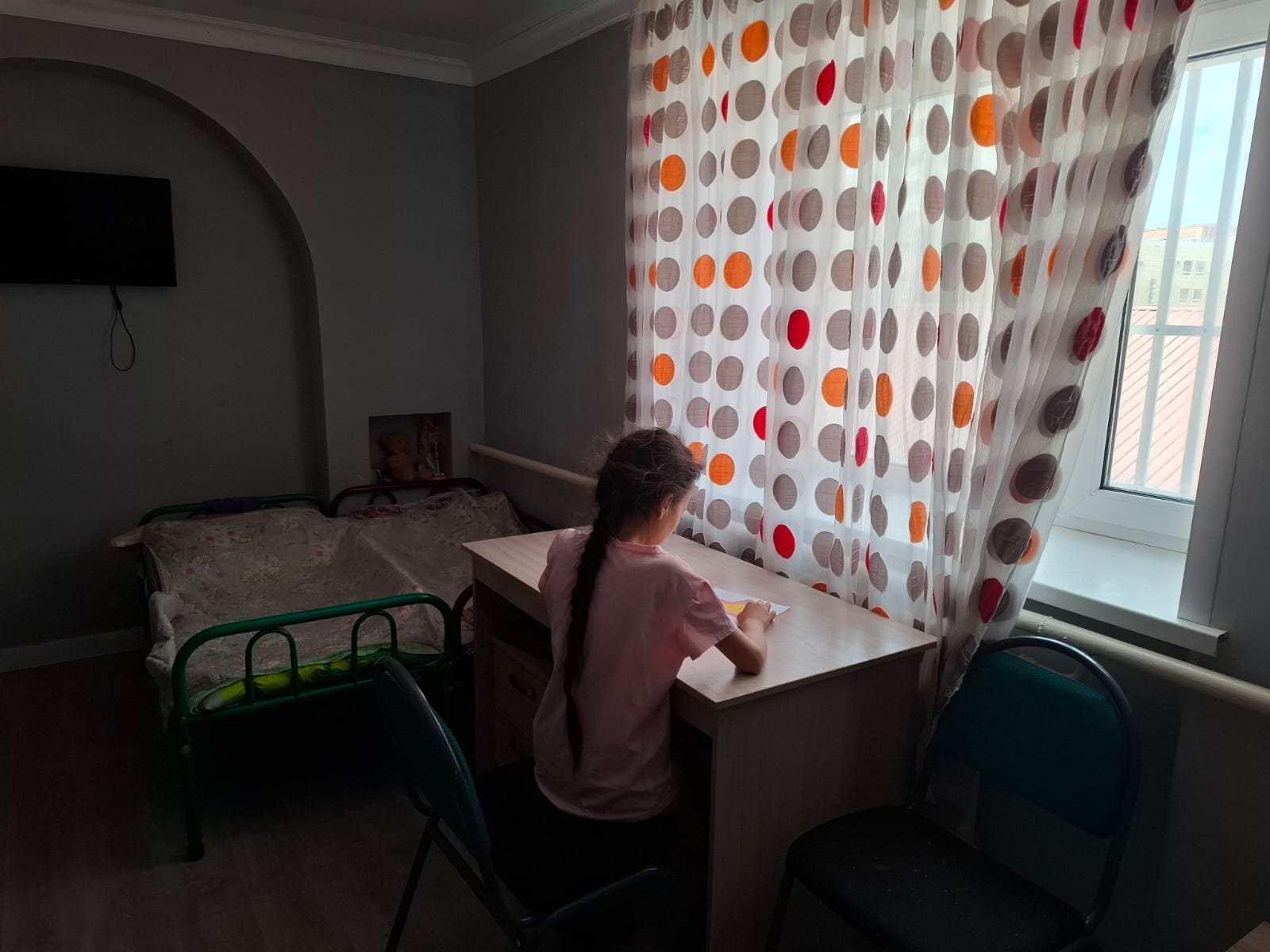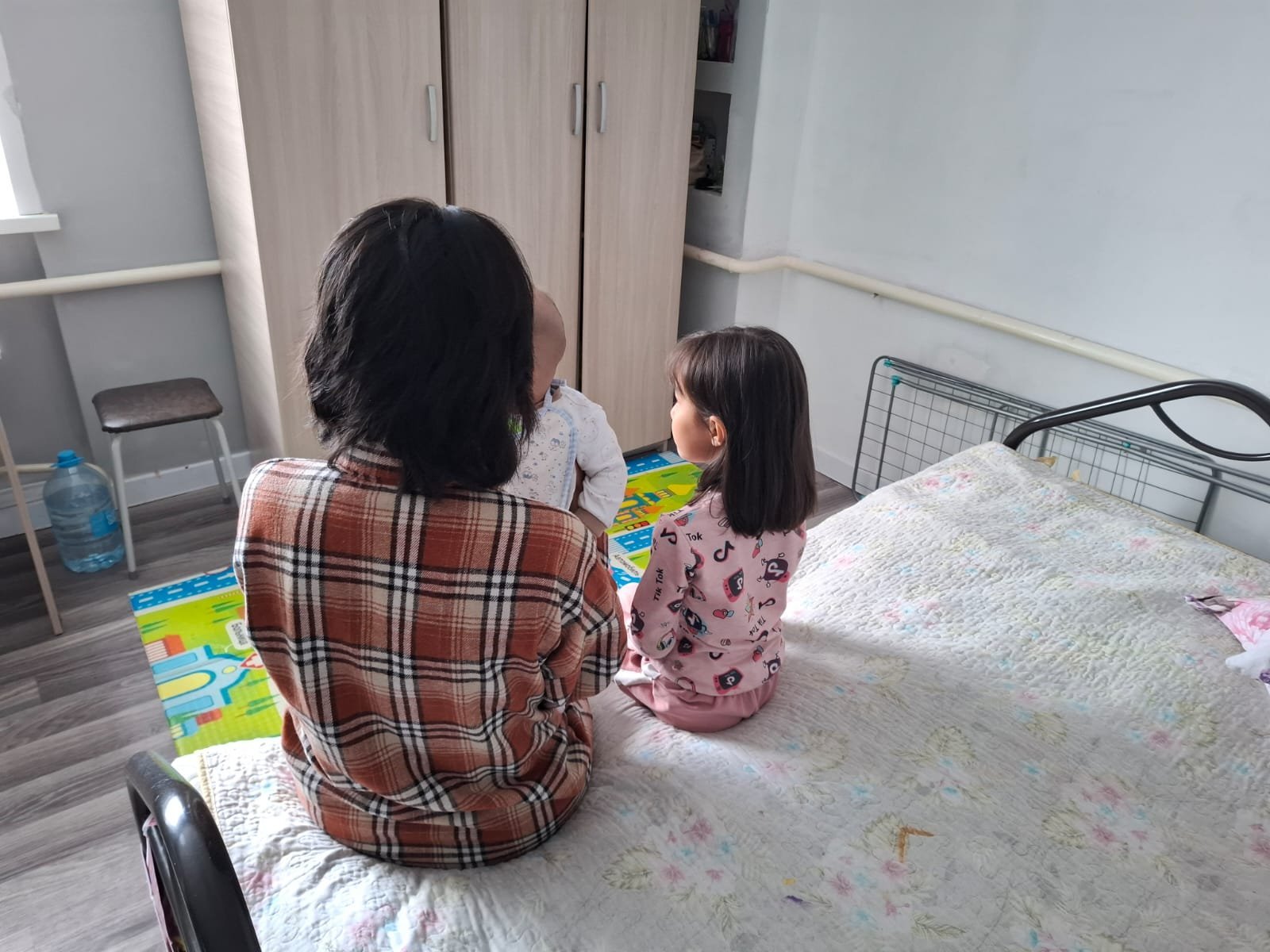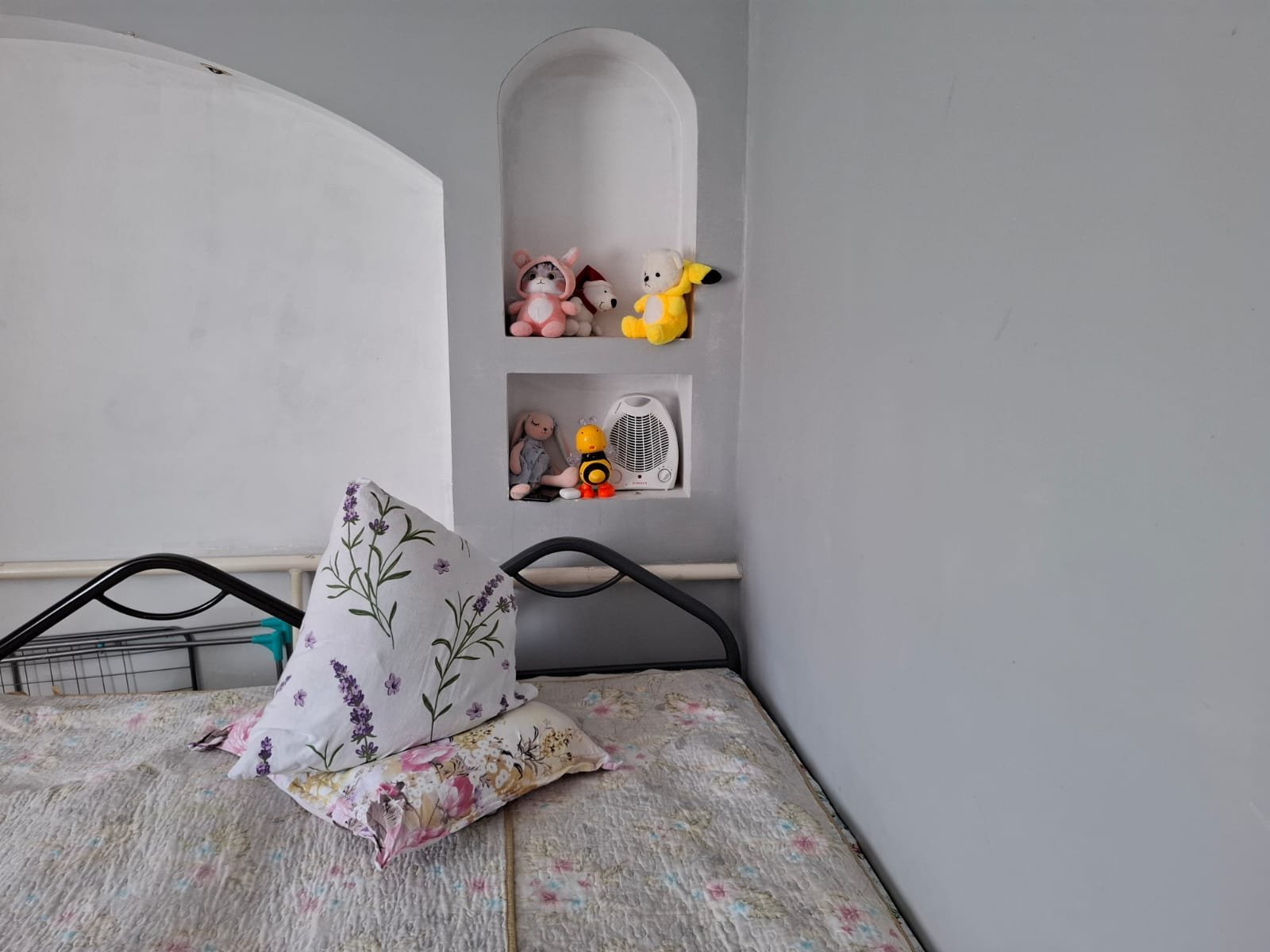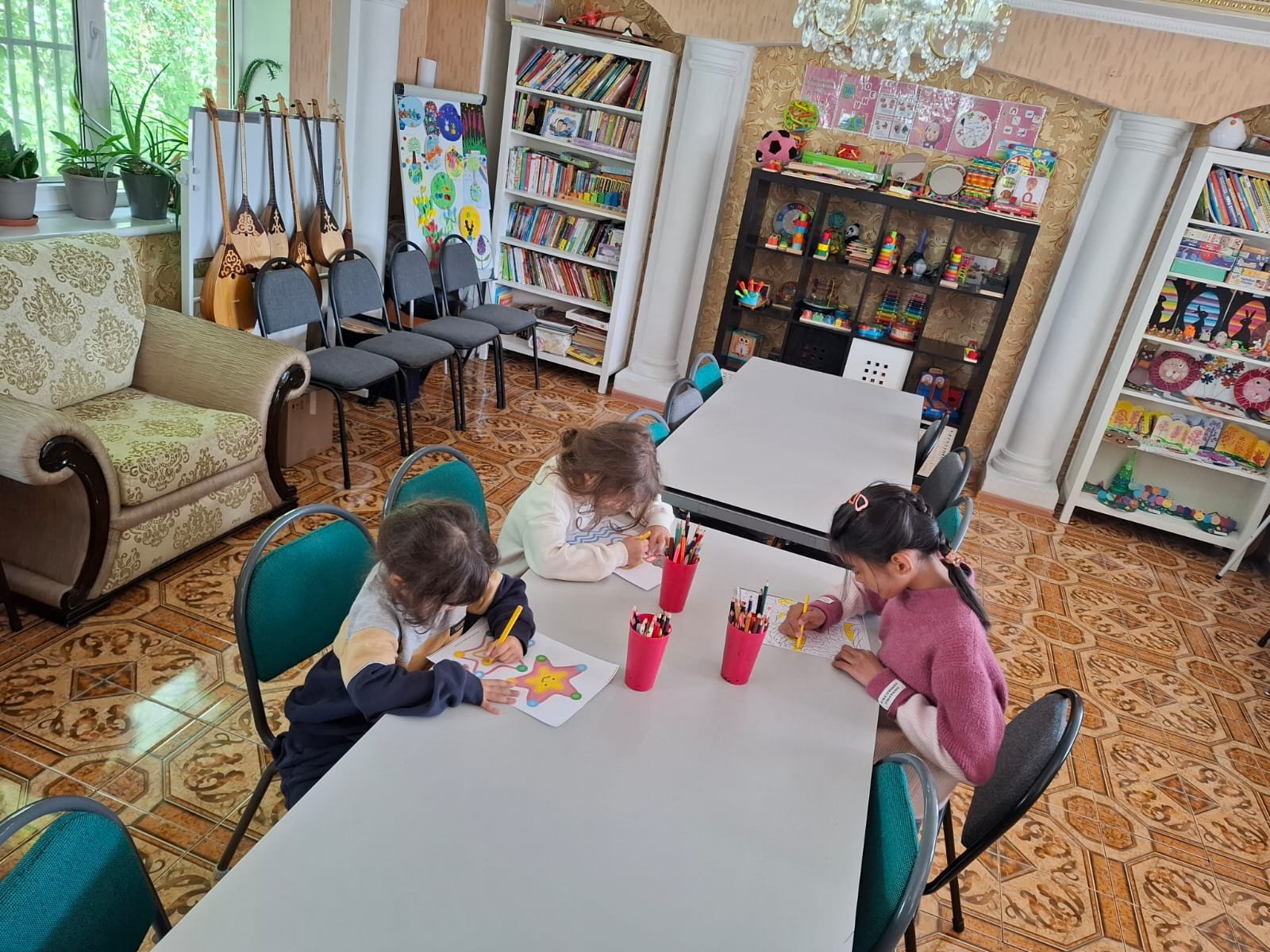Voices from the Shelter: The Hidden Struggles Behind Names Like Nukenova and Gosman
 Photo: Orda.kz
Photo: Orda.kz
Victims of domestic violence spoke to Orda.kz about what it’s really like to endure abuse at the hands of someone they once trusted with their lives — and their children’s.
The Tip of the Iceberg
Time and again, waves of shocking domestic violence cases emerge in Kazakhstan. In 2023, the country was stunned by the homicide committed by former Minister of National Economy Kuandyk Bishimbayev. For years, he had abused his partner, Saltanat Nukenova.
One night at the BAU restaurant, he beat her to death. In 2024, Bishimbayev was sentenced to 24 years in prison.
Before public outrage over that case had even settled, another story made headlines. Saken Mamash, a counselor at the Kazakh Embassy in the UAE, was accused by his wife, Karina, of a decade of abuse.
On Friday, July 18, 2025, Mamash was sentenced to six years in prison.
Just days earlier, yet another brutal case came to light. In a village in the Jetisu region, 32-year-old Aizat Dzhumanova, who was pregnant, was found dead with horrific injuries.
According to relatives, her husband tied her to a horse saddle and dragged her along the ground until she died.
He was arrested, but the case is currently being investigated under Article 106 of Kazakhstan’s Criminal Code — manslaughter. The victim’s family strongly disagrees with such a lenient charge and is demanding that he be prosecuted under Part 3 of Article 99 — intentional homicide with extreme cruelty.
But these high-profile cases are just the surface. Countless others go unheard and unseen.
Across Kazakhstan — from small villages to major cities — many families still follow an unspoken rule: keep quiet and keep up appearances. The concept of uyat, or shame, dominates.
Women are expected to endure abuse in silence, live in their husband’s shadow, serve his family, raise children, and be grateful they weren’t cast out with nothing.
A Collar of Fear

Victims of domestic violence can turn to crisis centers run by the Qorgau Public Foundation, which has been supporting women since 2009. These shelters offer more than just legal and psychological aid — they provide safety. A space where women and children who’ve faced abuse can rest, begin to heal, and understand they’re not alone — and that there is a way forward.
It was in one of these centers that Karina Gosman (Mamash), along with her children and sister, found refuge after escaping the UAE and reporting a decade of violence.
For Liliya, the nightmare began with what seemed like a fairytale romance. She met her future husband, Mansur (all names have been changed), online. He was polite, well-read, and sent heartfelt, beautifully written messages.
For a young woman from Kokshetau who had grown up with a strict father and a mother who had endured his behavior for years, those messages felt like a breath of fresh air.
At first, we were just talking as friends. He told me he had a girlfriend and that they were in a long-distance relationship. But after a while, he made it clear that they’d broken up. That was in the fall of 2012. In February 2013, he came to Kokshetau for a few days, and we met for the first time. When he left for Almaty, I cried — I had such strong feelings for him. He said he liked me too, that he felt comfortable with me, Liliya said.
Mansur suddenly became very assertive. He insisted, “I’ll come and take you. We’ll get married.” Liliya asked him not to rush. He replied, “Don’t you love me?” She found herself having to convince him: “I love you, but why rush?”
But under pressure, she eventually agreed. Still, it bothered her that he refused to meet her family.
When it came time for the ceremony, he said big gatherings made him uncomfortable — just part of his “personality.” So, there was no big wedding, just a quiet registration with only the mothers of the bride and groom present. Liliya was uneasy but went along with it.
On the day they signed the papers, she cried. Something inside her hurt and protested, as if warning her that this marriage wouldn’t end well.
They lived in his mother’s house, and arguments became frequent. Liliya thought that was normal—they just needed to adjust. But when she became pregnant with their second child, Mansur told her he wanted a second wife. He claimed he’d planned it all along. Liliya had no choice but to accept it.
The second wife lived in an apartment that had originally been bought for Liliya and Mansur.
Liliya wasn’t allowed to work. Her mother-in-law supported the whole family. Mansur officially held a job for just four months, then stopped. He again blamed his “mental peculiarities.” Over time, he claimed to be a handyman, then an astrologer, psychologist, and even an online sexologist.
During the first four years of marriage, Mansur cut Liliya off from her friends and family. When she tried to visit her mother, he would take her phone and ID. He left voice recorders in the room to monitor who she was speaking to while he was away.
Later, he installed cameras and watched the apartment constantly. He claimed it was for the children’s safety.
I was always afraid of his mother. She’s a lawyer, and sometimes Mansur worked for her as a driver, taking her to court and other places. At first, she tried to stop our fights but blamed me for them, saying I was always nagging or unhappy. I once went to her and asked her to talk to her son. I told her I missed my mom, that the kids hadn’t seen their grandmother. She tried once, but her son just shut her down, Liliya added.
Asking for help only led to more criticism. Her mother-in-law accused her of complaining too much, setting a bad example for her daughters, and not appreciating the “good life” she’d been given.
The violence escalated gradually. At first, it was just grabbing my arms. Then he slapped me for telling his second wife’s sister her address by accident. He beat her even more than me. Then he started pushing me into furniture, grabbing me so hard I’d bruise. One time, he dragged me into the bathroom and started choking me. When I nearly passed out, he let go, dragged me into the kitchen, sat me in a chair, and started punching me in the shoulder. He hit me like a punching bag. I had a huge bruise for a whole month.
She tried not to scream, so she wouldn’t frighten the kids. For eight of their 12 years of marriage, Liliya lived in constant fear, isolated, completely under his control, enduring regular beatings and verbal abuse.
He could grab my phone anytime, check who I talked to, and read my messages. One day, I was taking my daughter to school and saw a flyer offering a free legal consultation. I went in. A young woman was sitting at the front desk. I told her my story and asked for help getting a divorce. She was stunned that I had lasted so long. She told me I needed to get out and gave me the number for the Pravo Support Center. I memorized the numbers because I couldn’t risk writing them down — he could have found them. Liliya said.
After several meetings with a lawyer, secret calls with her mother, and discussions with Olga Ryl, the head of the Pravo center (and mother of Anna Ryl, who founded the Qorgau foundation), Liliya made her decision. She escaped in May 2025.
By that time, I had already earned back some of my husband’s trust — he let me talk on the phone without watching me. But I still didn’t write any numbers down; I just memorized them. I tried to delete anything suspicious from my phone. He kept asking, 'Who were you talking to? What were you talking about?' I’d answer in a casual tone that it was just my mom, chatting about the garden and what they were planting. But inside, I was terrified he’d figure it out — that he already knew everything.
On the eve of her escape, Mansur asked Liliya to pick up his eldest daughter from school. Then she was told to take their own children to his second wife’s apartment and watch the younger kids there.
I brought the little ones to the house. He checked everything on the cameras — there were cameras in the second wife’s place too. He said her kids would stay, and mine could go for a walk. While we were at the playground, he showed up and started berating me in public for calling him at the wrong time and interrupting an important meeting. He called me stupid, shallow. I wasn’t allowed to push back — just listen in a soft voice and take the insults. He was yelling. People started to stare. We’d had worse fights, but this was the last straw, she said.
The next day, she made her decision. She had already packed a small school backpack with essentials — anything bigger would’ve made him suspicious.
The kids were home. I told them we were going for a walk. My eldest daughter didn’t want to go — it took some effort to convince her. We left, took a short bus ride, and I called Olga Vladimirovna (Ryl —Ed.). She immediately called a taxi for us. They took us to a crisis center in Almaty. I was shaking all over. The kids asked what was going on. I told them: your dad and I are getting a divorce. He’s been hurting me and keeping me from seeing family. They were upset.
From Almaty, she and her children were taken by taxi to the Qorgau center in Astana. While Liliya was trying to come to terms with their new reality, Mansur got into her account and locked her out, changing all the passwords. Her phone had hidden folders — photos of bruises and other evidence — but the lockout forced her to wipe the phone completely and reset it.
He had this whole rulebook for how I was supposed to behave, what I could and couldn’t say to him. I saw the same list written out at his second wife’s place: ‘I must obey my husband. I must not raise my voice. I must do whatever he says at any time, even if I don’t want to,’ and so on.
Saltanat Nukenova was once forced to write similar rules by Kuandyk Bishimbayev.
Liliya escaped in time — before anything worse could happen. But her husband and mother-in-law haven’t forgiven her.
My mother-in-law is threatening to take the kids. She says I’ve been negligent and put them in danger more than once, and that she’s documented everything. She also says I haven’t worked in nine years and don’t have stable living conditions.
Now Liliya is preparing to file for divorce. She plans to get licensed, find work, and raise her children.
But the threats and pressure from Mansur and his mother continue.
Your Life
Aisara’s story (name changed) mirrors those of thousands of women across Kazakhstan. She was married for 11 years and gave birth to four children. But her husband, Askar, turned out to be a gambling addict.

He wasn’t always like that — it only started in the last four years. Everything was fine at first. We met, dated. He worked as a hairdresser at a beauty salon where some Turkish stylists worked. They used to gamble. At first, he just watched. Then he tried it himself — and got hooked. For the past four years, he barely worked. All he did was gamble, Aisara shared.
After eight years on maternity leave, she returned to work — by then, Askar was already losing money and pawning off anything of value from the house, including her laptop and gold jewelry.
Each time, he swore he was just one jackpot away. When she refused to give him money, he started assaulting her.
I couldn’t cope anymore. I was paying rent, feeding the kids. I had to beg for help just to get them dressed for school. We had nothing.
Eventually, Aisara left with the children and rented an apartment. But Askar found them. He spent months begging her to come back, promising to change, saying he’d work and take care of the family. Aisara gave in. She forgave him — again — and agreed to split the rent.
At first, he pretended to look for work. Then he pretended to have a job. We lived in the apartment — I was the one paying for it. He convinced me to take out a loan, promised we’d open a salon. I borrowed two million tenge in my name. We sold a piece of land I inherited for three million. I don’t even remember how we sold it, where the money went — I never saw it. We were just drowning in debt. We owed everyone, she recalled.
In desperation, Aisara reached out to the Qorgau Center. Her husband even came there again, repeating the same old promises. But this time, she didn’t believe him.
Now Aisara is planning a fresh start. She hopes to move to another city to live with her aunt, find a job, and spend her money on herself and her children.
Though the loan still needs to be paid off, she’s consulting with lawyers about how best to handle it.
Before leaving, she confessed that deep down, she still hopes: maybe one day her husband will change, stop gambling — and maybe then, they could be a family again.

Why it’s crucial to seek help from violence protection centers was explained by Anna Ryl, director of the Qorgau Foundation. She said the “scare tactics” commonly used by abusers and their relatives to keep women from getting help are fictitious in nature:
The first thing family and friends tell a woman thinking of coming to us is that the crisis center is some terrifying place — like a prison. But once women arrive, they say they feel freer here than they ever did at home. Another myth is that if a woman seeks help, her children will be taken away. This is the favorite threat of abusers and their families — especially husbands and mothers-in-law — to keep women silent. But it’s not true. No one will take their kids. In fact, we have social workers here who help care for them. The only time we step in is if a woman starts reacting aggressively toward her kids or hits them. We do not tolerate physical punishment in our centers, Anna emphasized.
Sometimes, she said, women will call their relatives from the center, trying to reconcile or explain.
That happens — and it’s normal. Deep down, a woman dreams that her partner will apologize, admit his mistakes. She wants the man she fell in love with to come back. After all, when they first met, she was young, he was handsome — they liked each other. That was a good time in her life. He wooed her, treated her well. But later, it turns out he’s addicted to gambling, drugs, or something else. And she still wants to return to that moment, to that version of him. But neither she nor he will ever be that person again. It’s hard to accept that truth,Anna added.
There are currently seven Qorgau crisis centers operating across Kazakhstan — in Astana, Almaty, Qaraganda, Yekibastuz, Kokshetau, Jezkazgan, and a small center in the village of Osakarovka in the Qaraganda region.
In Astana, the crisis center has two branches in separate districts. Each branch has six bedrooms and a total of 30 beds. Typically, one room houses one family — a mother and her three or four children.

Ideally, we’d like to model it after European centers, where every family has its own room, kitchen, and private bathroom. But for now, this is the best we can offer — a setup that feels a bit like a hospital, with shared bathrooms, toilets, and laundry facilities, said Anna Ryl.
Each Qorgau center includes a psychologist who works with both adults and children, a speech therapist’s office, a medical room, a cafeteria, a shared kitchen, and a large playroom.
In the Name of Saltanat
Discussions about expanding crisis centers — about how to make them safe, comfortable, and supportive for women and children — often come with a sobering realization. How dangerous must people become to one another that we’ve created entire systems to shelter the vulnerable from their own families?
The question of how to fight the epidemic of domestic violence — through better education, more media coverage, or stricter punishment of offenders — is one that societies around the world continue to grapple with.
In Kazakhstan, efforts to expand protective centers have coincided with tougher penalties for abusers.
On April 15, 2024, President Toqayev signed into law a series of amendments aimed at strengthening women’s rights and protecting children. The law was passed during the high-profile trial of Kuandyk Bishimbayev and was named by people after Saltanat Nukenova.
More than a year has passed since the “Saltanat Law” came into effect. In her memory, Saltanat’s brother Aitbek Amangeldy founded a volunteer network that supports victims of domestic violence.
According to Aitbek, the attitude toward domestic violence has begun to shift — both in government and society, including among ordinary citizens and law enforcement.
In the months following Bishimbayev’s conviction and the introduction of the Saltanat Law, domestic violence cases dominated public discussion.
Some experts feared the momentum would stall and abuse would once again be swept under the rug.
Aitbek believes otherwise:
This is one of those moments when you can’t put the genie back in the bottle. Society has taken a clear stand against violence. The challenge is that we’re still receiving fragmented information — we lack a full understanding of how events unfold and what they lead to. It is necessary to work on giving people, society, and the state a complete picture, stories that show the entire path. That means telling complete stories, ones with a clear beginning and end, where each step is understood: from the abuse itself to the final verdict in court. These stories have the power to educate the public and serve as a warning to potential abusers. Aitbek Amangeldy believes.
Aitbek also pointed out that Kazakh society remains deeply divided — between those who condemn violence and those who normalize or hide it.
Unfortunately, we see hateful comments — even from women — whenever someone speaks out about abuse. We still have a lot of work to do when it comes to changing how people think. Our society is shaped by a concept of uyat — shame — that blends tradition, religion, and outdated stereotypes. Boys are often raised like royalty, while girls are undervalued from the moment they’re born. Families still hope for sons and welcome them as heirs, but barely celebrate the birth of daughters. At its core, this reflects a deeply rooted belief that boys are more valued than girls.
According to Aitbek, much of this mindset stems from older generations, who grew up in harsh conditions and passed down problematic beliefs.
Our elders were raised to believe that hitting someone was a way to resolve things — that men should ‘discipline’ their wives, and that daughters-in-law should serve everyone in the household. This needs to be dismantled. We are no longer living in a feudal system where women are expected to serve others. Marriage should be a union of love and mutual respect — a choice made by two people who want to build a life together. Not because she’s good at cleaning floors or washing someone’s feet.
Conservative groups continue to wield significant influence in Kazakhstan, using questionable interpretations of Islam to push their norms onto a secular society. These efforts often focus on excluding women from public life—pressuring them to wear restrictive clothing, stripping them of financial independence, denying them the right to choose a profession, and prohibiting them from making decisions about their own bodies and health.
None of this is actually part of Islam,” Amangeldy noted. “These are radical interpretations pushed by certain patriarchal groups for their own interests. There are also extremist factions opposing efforts to combat domestic violence. They promote so-called traditional practices like early marriage. But behind this agenda is a deeper goal: to destabilize Kazakhstan’s internal politics by fueling social conflict. We saw these groups emerge during advocacy for the Saltanat Law. Even now, they continue spreading the idea that some people are ‘right’ and others are ‘wrong’; that some laws are ‘traditional’ and others — those based on equality regardless of gender, age, or religion — are not.
He also voiced a view that remains unpopular in Kazakhstan: domestic violence is not a women’s issue—it’s a men’s issue. That’s because in 99% of cases, the perpetrators are men.
Women and children are overwhelmingly the victims.
There’s a serious lack of male voices in the fight against domestic violence. We need men to condemn other men’s actions. If you beat your wife, I should be ashamed to be your friend. If you cheat on your partner, I won’t come to your parties. We need more decent male voices setting the tone and shaping how society responds to abusers. I work on this issue because, as a man, I see it as my responsibility.
In 2024, Kazakhstan introduced sweeping legislative reforms to address domestic violence. Battery and minor bodily harm were reclassified from administrative to criminal offenses.
Authorities also moved from a declarative model — requiring a victim’s complaint — to an investigative model that allows prosecution once abuse is discovered, even without a formal complaint.
Reconciliation between the victim and perpetrator is now prohibited in cases involving minors or repeated abuse.
New laws also criminalized sexual harassment of minors (under 16), as well as incitement or assistance in suicide. Molesting of a minor now carries a mandatory life sentence.
Courts can now ban abusers from living with their victims for up to 30 days.
According to the Ministry of Internal Affairs, police received nearly 100,000 reports of domestic violence last year. As a result, authorities issued over 72,000 protective orders and handed down court rulings in 16,000 cases.
Original Author: Anastasia Prilepskaya
Latest news
- Kazakhstan Prosecutor Opposes Deportation of 16-Year-Old Russian Teen
- Russian TV Channels Taken Off Air in Kazakhstan
- Mistaken Claim? Kazakhstan Denies $1B Contribution to the Board of Peace
- How many Kazakhstanis remain in the Middle East — MFA
- Kazhydromet Warns of High Flood Risk in Five Regions in 2026
- MP Calls for Prosecutor Review of Kazakhstanis’ Dubai Property
- Kazakhstan Moves to Legalize Private Detective Work
- Kazakhstan to Extend Gas Export Ban for Six More Months
- Majilis MP Calls to Soften Liability for Kazakhstanis Drawn into Foreign Wars for Pay
- The Delivery of 51 Stadler Passenger Coaches Has Been Delayed
- Kazakhstan Returns Nearly 1,000 Citizens From the Middle East
- Damaged Baikonur Launch Pad Facility Restored After 2025 Collapse
- A Rare Black Melanist Wolf Was Shot in Eastern Kazakhstan
- Kazakhstan Maintains Neutral Stance on Middle East Escalation
- Kazakh MFA: Citizens Evacuated from the Middle East via Oman and Saudi Arabia
- Kazakhstan to Spend 4.6 Trillion Tenge on Road Projects Through 2029
- Central Asia Competes for the Skies: Why Kazakhstan Risks Falling Behind Uzbekistan on Jet Fuel
- The War in Iran Opens a Window of Opportunity for Kazakhstan’s Oil Sector, Analysts Say
- Iran Conflict Escalates Beyond the Gulf: What Kazakh Experts Say About Risks for Central Asia and Kazakhstan
- Kazakhstan Prepares Possible Evacuation of Its Citizens From Iran

